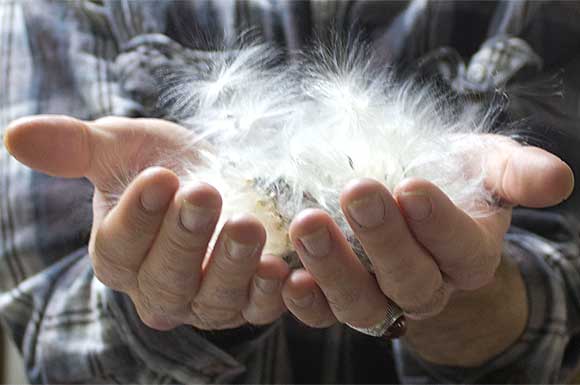Ryan Welfle borrowed the idea in Toronto and planted it in Halifax.
Since then, the Halifax Heritage Seed Library has taken root.
“I for sure see a future for the expansion of the seed library,” said the 26-year-old founding coordinator of the Halifax Heritage Seed Library. “The Toronto Seed Library inspired me to create seed libraries.”
Welfie first used a seed library at Seed Wednesday, an event at Toronto City Hall showcasing the Toronto Seed Library.
“Pretty much everybody that hears about the seed library concept thinks it’s a great idea,” he said.
The Toronto Seed Library was born in 2012. Since then, the library has established three travelling branches and 14 stationary branches where users check out and return seeds.

Brendan Behrmann
“You get seeds for free, learn how to grow them, harvest the food, save the seed and then hopefully return some of those seeds to the community,” said Brendan Behrmann, the library’s chief librarian and cultivator.
Much like traditional libraries, the Toronto Seed Library is meant to preserve and share know-how, he said.
“We need to maintain an idea and knowledge as to where our food comes from,” Behrmann said. “We need to know how to grow food and at the most basic level how to save seeds so that food can continue to exist.”
Brett Hawes agreed.
“When we are connected to our food, we make better food choices,” said Hawes, nutrition and environment instructor at the Institute for Holistic Nutrition.
For users of the Toronto Seed Library, that connection has happened surprisingly fast, Behrmann said.
“The simple act of planting a seed and taking it from there is simple enough,” Welfie said. “You see what works and what doesn’t work right off the bat.”
But for the library to succeed, users need to save and return some of the seeds they grow, Behrmann said.
“We had a low expectation of our return rate because of a lot of factors and we are yet to expand the educational aspect of saving seeds,” Behrmann said. “A lot people are going to experience crop failure. A lot are going to eat their harvest and accidentally not save seeds.”
Despite this, the numbers have been better than expected, he said.
“We ended up getting up to a 15–20 per cent return rate,” Behrmann said.
With the library’s roots established, Behrmann said the goal now is to grow more in the direction of education.
“We are hoping to … get an expert certification process where we can teach people the nitty-gritty of seed saving,” he said.
Programs like the Toronto Seed Library are part of a growing connection to locally produced food and local food producers but, Hawes said, it’s a connection that’s growing too slowly.
“I think there is a sense of urgency, looking at the environment and the health of people,” he said. “The gradual shift needs to happen much quicker.”
Welfie agreed. It’s part of what led him to coordinate a new seed library in Halifax.
“It’s an idea that is right for the times we live in now,” Welfle said. “It only takes a motivated individual or two to get one started.”

